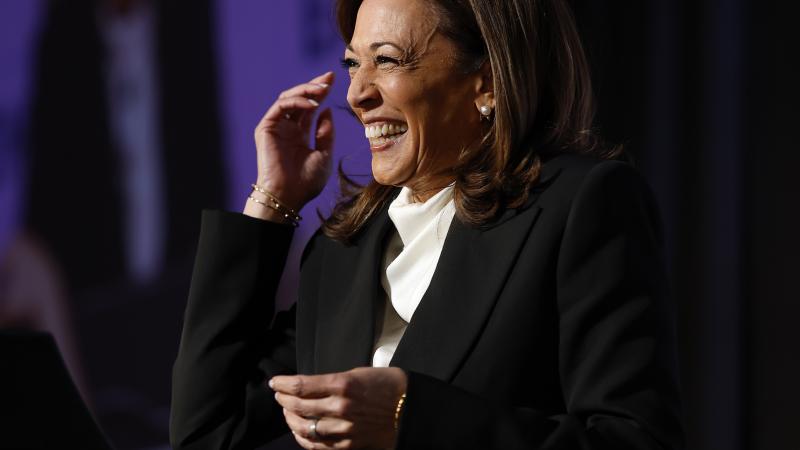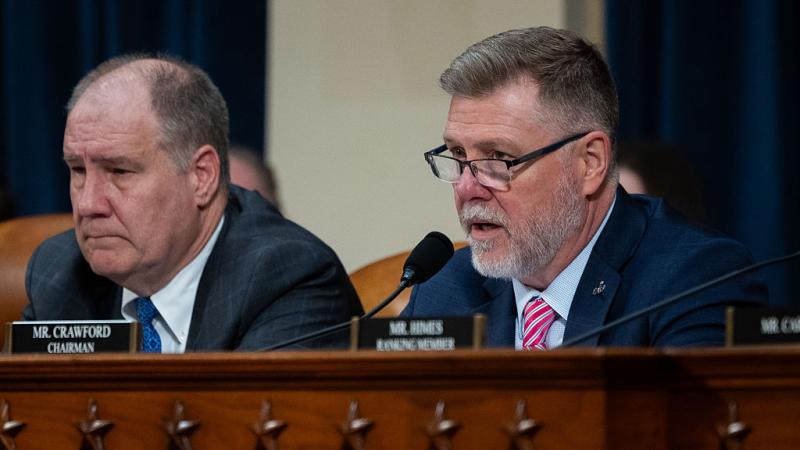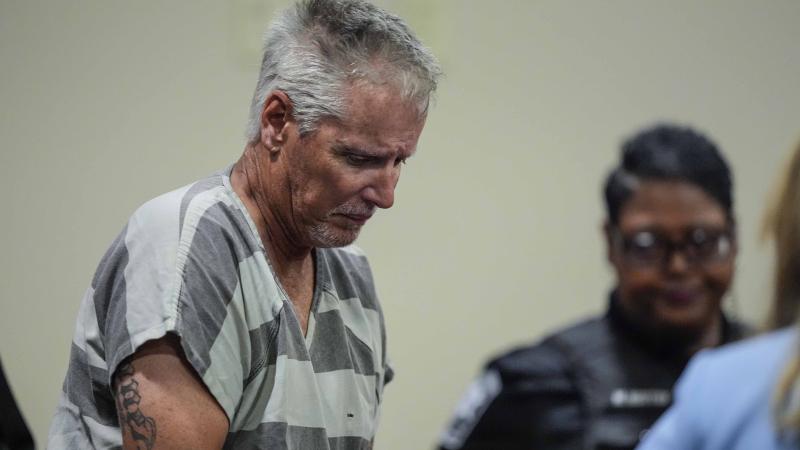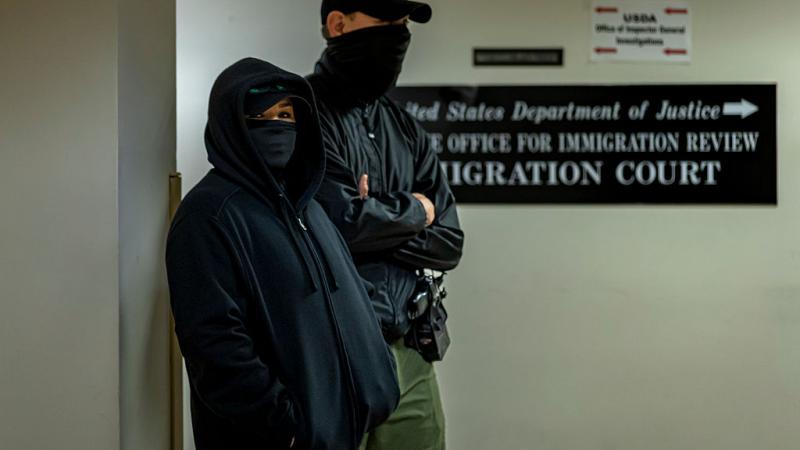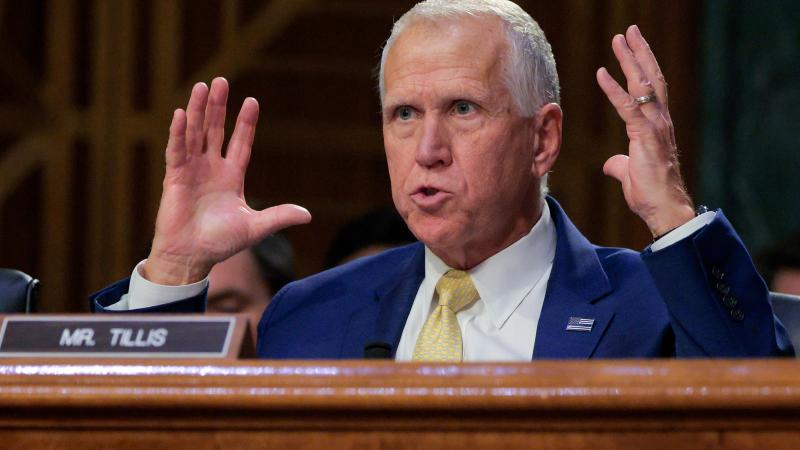Democratic Maricopa County Attorney candidate supported by Soros-funded group, pushes back on cops
"If the officer is saying something, especially something that is critical, and he doesn't have his body-worn camera, then perhaps at that point that testimony needs to go," Tamika Wooten said.
In a close race for the Maricopa County Attorney’s office, the Democratic candidate is supported by a group funded by progressive megadonor George Soros and promotes clamping down on police.
Tamika Wooten, the Democratic candidate who is running against Republican incumbent Maricopa County Attorney Rachel Mitchell, has said she would push back on police officers by withholding pay from them if they do not have their body cameras on. She also sided with the U.S. Department of Justice’s assessment of the Phoenix Police Department, which the federal agency wants to have monitored.
The Maricopa County attorney’s office is one of the largest prosecutor’s offices in the U.S. with more than 1,000 employees and over 30,000 criminal cases prosecuted annually.
The race for the prosecutor’s office is close, according to a local poll. Mitchell is ahead of Wooten by two points, 37% to 35%, per a survey conducted by Noble Predictive Insights. Wooten has a 10-point lead with independents. The poll was conducted Aug. 12-16 of 595 registered voters residing in Maricopa County with a margin of error of ± 4.02%.
Wooten was the chief prosecutor in Glendale for five years, starting in 2003, according to local news station KJZZ. She has also been a defense attorney and served as a judge pro tem.
Although she is running for county prosecutor, Wooten has objected to Arizona House Concurrent Resolution 2060, the “Secure the Border Act,” which has been placed on the November ballot for voters to decide whether local law enforcement should be allowed to arrest people who illegally cross the border into the U.S.
According to an audio recording of an August meeting of Maricopa County Young Democrats, Wooten said, “[W]e need to make sure that we treat all of our communities equally. Let's protect all of our victims, let’s protect our citizens. We need to make sure that we treat everybody equally and fairly.
“You know, we have [HCR] 2060 that's going to come down the pike. [As] county attorney, I'm not going to allow racial profiling for stops,” she continued. “There's plenty of other things going on where we don't need to patrol our citizens and following people just because we believe they may have done something wrong.”
Another Soros-funded prosecutor
Last month, Wooten was endorsed by Our Voice, Our Vote Arizona, which received $1.05 million from progressive billionaire George Soros’ Open Society Action Fund last year. Soros has repeatedly funded progressive candidates in prosecutor races, as he has injected tens of millions of dollars into local district attorneys races nationwide, backing candidates who support policies such as abolishing bail, defunding the police, and decriminalizing or deprioritizing certain offenses.
The Law Enforcement Legal Defense Fund (LELDF), says that "Over the past decade, billionaire George Soros has spent at least $50 million to elect scores of “social justice” prosecutors across the country. These district attorneys, who represent over 70 million people or more than 1 in 5 Americans, often pursue pro-criminal and anti-police policies." LELDF created a database listing the "Soros Prosecutors" who have been propelled into office.
LELDF is a 501(c) charity that says its mission is to "support and defend the law enforcement profession and those law enforcement officers who have devoted their lives to upholding the Constitution and serving the United States and its citizens while enforcing its laws."
Wooten also said during the Maricopa County Young Democrats meeting that if she is elected county attorney, then police officers’ testimony might be thrown out if they didn’t have their body camera on and they could be docked pay from their shift if their body camera is not on.
“And I submit that if the officer is saying something, especially something that is critical, and he doesn't have his body-worn camera, then perhaps at that point that testimony needs to go, you know. Because again, if he's saying something happened, they're all equipped with body-worn cameras,” Wooten said.
“So now, if you're saying something happened and you magically didn't have your camera on, you got a problem, you know. And so I want to talk to the city of Phoenix, whatever, and say, number one, this case is dismissed, or this officer does not … get paid for that shift because, you know, he's walking around supposedly patrolling legally, but he's not … his body-worn camera. As I said before, if there's any type of excessive force, any type of use of guns to injure somebody, kill somebody, I will prosecute them.”
Wooten also explained during the meeting that she lost an endorsement because of her comments on the DOJ’s assessment of incidents that occurred in the Phoenix Police Department.
“I have lost my city of Phoenix endorsement because I did make a comment about the DOJ report,” Wooten said.
DOJ report
In June, the DOJ released a report from a nearly three-year investigation of the Phoenix Police Department, finding that the local police department “engage[d] in a pattern or practice of conduct that violates the U.S. Constitution and federal law.”
Among the issues the DOJ cited were that the Phoenix police uses “excessive force, including unjustified deadly force and other types of force,” and the police and city “unlawfully detain, cite, and arrest people experiencing homelessness and unlawfully dispose of their belongings.
The Phoenix Police Department responded to the report by launching a website with the police incidents the DOJ noted in its report. Of the approximately 132 incidents, the Phoenix Police Department was able to identify 120 and that 48 of those were found to have followed policy, 17 had not, while 47 weren't internally investigated at all.
The police department also included on the website its own reform report from January in which it has addressed use of force incidents.
The DOJ has sought to implement a consent decree with the city that would include an independent monitor overseeing the police department, which local officials have claimed is unnecessary.
Following the release of the DOJ report, Wooten posted on Facebook in June, writing, “The DOJ found specifically that the Phoenix PD engaged in a pattern or practice of using excessive force; unlawfully detaining, ticketing and arresting homeless people; discriminating against Black, Hispanic and Indigenous people in its policing enforcement; violating the rights of people engaged in demonstrations and protests and discriminating against people with behavioral health disabilities.
“When elected as Maricopa County Attorney, I will not ignore racial profiling, the use of excessive force or the criminalization of homelessness or mental illness,” Wooten continued.
“I will utilize my past experience as a chief prosecutor, defense attorney and a judge to ensure that justice is served for EVERYONE. I will treat mental illness and addiction as health issues and not criminalize poverty. I will bridge the gap between law enforcement and the community.”
Rep. Ruben Gallego, D-Ariz., who has endorsed Wooten, opposes the DOJ’s consent decree.
Gallego sent a letter to the DOJ regarding the consent decree, writing, “While I appreciate your efforts, I am deeply concerned that DOJ’s approach to PPD misses the mark, could impose overly burdensome costs, and ultimately have unintended consequences that will undermine the safety of our community.”
“DOJ is attempting to impose a consent decree on the PPD, but consent decrees have a mixed record at best of improving public safety results,” he later added. “With an average monitoring period of ten years under a consent decree, this process is also tremendously expensive and imposes serious burdens on the PPD. The City of Phoenix expects to spend close to $50 million if a consent decree is adopted—a significant burden on local taxpayers.”
Rather than a consent decree, Gallego recommended the DOJ send “a technical assistance letter, which would streamline the monitoring process, particularly considering the ongoing reform process that has already been implemented by PPD. If done right, a technical assistance letter can improve a police department, create a cooperative relationship between the department and the DOJ, and do so without risking staffing shortages or increasing the financial burden on our communities.”
Mitchell, Wooten’s opponent, wrote in a July op-ed regarding the consent decree that the “DOJ’s ultimate agenda” is “controlling local police departments.
“I’ve got news for them: A bunch of D.C. attorneys with no actual law enforcement experience will not make Phoenix safer,” Mitchell wrote. “DOJ consent decrees do not yield better outcomes or safer communities. In fact, in most cities subject to DOJ consent decrees see violent crime increase within the first two years.”
Wooten and her campaign didn’t respond to requests for comment.
The Facts Inside Our Reporter's Notebook
Audios
Links
- largest prosecutorâs offices
- survey conducted by Noble Predictive Insights
- according to local news station KJZZ
- Arizona House Concurrent Resolution 2060
- endorsed by Our Voice, Our Vote Arizona
- received $1.05 million
- funded progressive candidates
- injected
- LELDF created a database
- released a report
- DOJ cited
- launching a website
- identify 120
- reform report
- implement a consent decree
- posted on Facebook
- Wooten continued
- endorsed Wooten
- sent a letter
- he later added
- Gallego recommended
- wrote in a July op-ed
- Mitchell wrote


